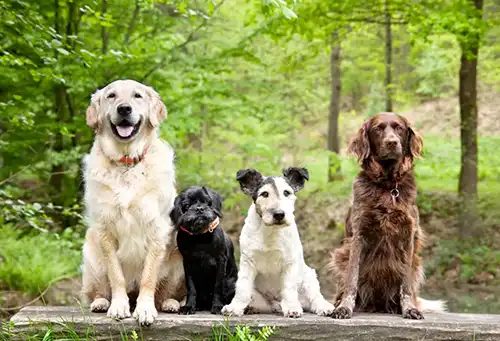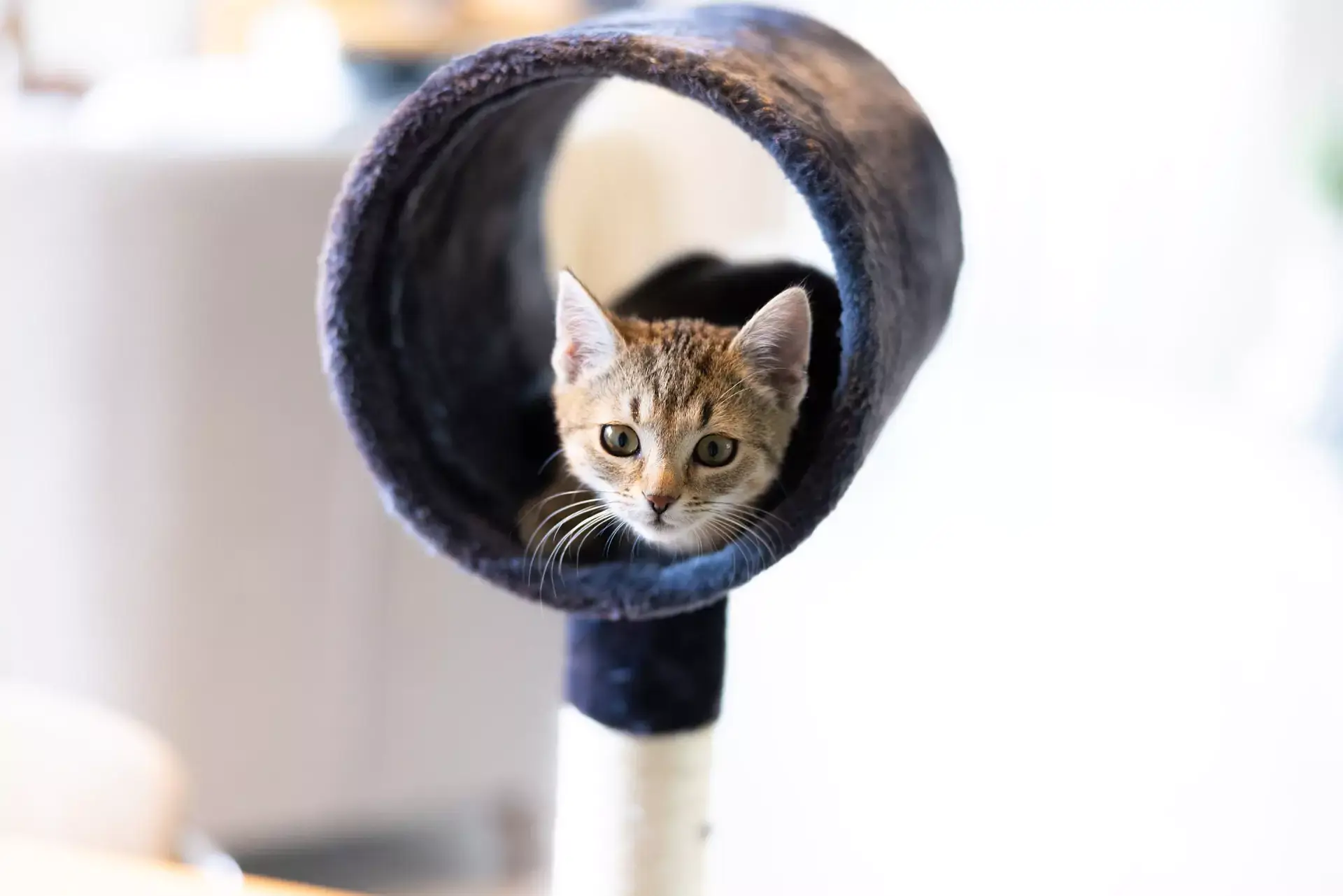As our beloved canine companions age, they enter a unique phase of life that brings both charm and challenges. Just like puppies, senior dogs require special care and attention to thrive in their golden years. One essential aspect of maintaining their well-being is knowing how to keep a senior dog healthy. This article will guide you through practical tips on feeding, exercising, grooming, and more to ensure your older dog enjoys a comfortable and fulfilling life. Dive in to discover expert advice on keeping your furry friend healthy and happy, making the most of your time together as they gracefully age.
Is your canine companion in his golden years? This is a very special stage in your pet’s life. While we can’t deny that puppies are absolutely adorable, senior dogs are also really special … not to mention super cute. As your furry pal ages, you may notice that he somehow manages to get even more lovable. Older dogs tend to be very calm and sweet, and they really just want love, belly rubs, and, of course, treats. You will need to adjust Fido’s diet and activity regimens as he ages. A local Guelph, ON vet offers some advice on this below.
Feed Your Dog A Nutritious Diet
Your vet will be able to advise you about when it’s time to make the change to senior food. This will need to happen slowly, over the course of several days.
You may also need to adjust Fido’s portions. Most dogs need fewer calories as they age: Fido won’t be as active as he once was, so he won’t burn as much fuel as he used to. However, some pups may actually need more. If your pet has thin fur, he may need more food to help him stay warm. Ask your Guelph, ON for specific advice.
Visit Your Guelph, ON Veterinarian Regularly
Your canine buddy may need to come into our clinic more often once he becomes a senior. While it’s always important to watch for signs of sickness, this becomes even more crucial with older dogs.
Here are a few things to watch for.
- Changes In Appetite
- Diarrhea
- Breathing issues
- Difficulty urinating
- Disorientation
- Lethargy
- Weight loss/gain
- Inconsistent sleep
- Lameness
- Vomiting
- Abdominal Swelling
- Behavior changes
- Anxiety
- Bad breath
- Stiffness
- Trouble climbing
- Trouble getting up or down
- Restlessness
- Eye/vision changes
- Irritability
- Itching
- Skin/Fur problems
- Weight gain
- Accidents
Contact your vet right away if you notice any of these things.
Make Sure Fido Is Getting Enough Exercise
Just like people, dogs slow down as they grow older. Fido may be more interested in catching Zs than in catching squirrels at this point in his life. While it’s adorable seeing an older pooch peacefully snoozing in his doggy bed, don’t let your furry pal become a couch potato. It’s important for your pet to stay active! Regular exercise will help keep your canine buddy’s bones and muscles strong. It can also help fight obesity, which is extremely common in aging pets.
For most dogs, daily walks are the way to go. You may find that shorter but more frequent walks work best. Swimming can also be a great option for some pups. Ask your vet for specific recommendations.
Don’t Skip Playtime
Playing will still be both fun and beneficial for an older dog. You may need to start focusing more on things that challenge your dog’s mind, rather than burn off extra energy.
Here are a few games you can play:
- Three Cups
- Hide And Seek
- Scavenger Hunts
Puzzle toys and snuffle mats are also pretty popular with our canine buddies. FIdo may still enjoy playing things like Fetch. Just make sure not to overexert him!
Protect Fido From Temperatures
Older dogs are much more susceptible to heat and cold than young ones. If Fido has thin fur, he may need a jacket when it’s cold You’ll also want to make sure your pet’s bed isn’t in a drafty spot in winter or in direct sunlight in summer. Provide lots of fresh, cool water, and consider putting out extra bowls in summer. In winter, give your pet warm, cozy spots to nap in.
Pupgrade Your Pet’s Dining Experience
Your veterinarian may recommend giving your older dog elevated dishes. These are more comfortable for many older pups, as they don’t have to splay their legs or strain their necks to eat. However, there may be a risk of bloat for some pooches, especially large dogs and those that tend to ‘wolf’ down their meals. Ask for specific tips on this.
Don’t Forget Grooming
It’s probably safe to say that your dog won’t be any more fond of baths now than he was as a puppy. However, grooming isn’t just important for making Fido look dapper. It also has a massive effect on his comfort! If your pup’s coat is full of dust, dirt, and dead fur, it will get itchy and uncomfortable. It also won’t be much help in protecting him from the elements.
If you have a large—or even medium-sized dog—it may be hard for you to get him in and out of the tub. You also don’t want to risk your pet slipping and falling! It may be a good idea to go to a groomer. They often have stations that are easy for Fido to get in and out of.
Dental Care
Dental issues are quite prevalent in senior dogs. These can seriously impact your pet’s quality of life! Ask your vet for tips on keeping those choppers clean. You’ll also want to watch for warning signs, such as bleeding gums, bad breath, drool, tartar buildup, and changes in eating habits.
Ask Your Guelph, ON Veterinarian About Supplements
Supplements aren’t a cure-all, but they can definitely help boost and support Fido’s health as he ages. These are not one-size-fits-all, though: what is best for your dog will ultimately depend on his age and health. For instance, glucosamine and fish oil may be beneficial for joint support. A pooch that is having vision problems may benefit from Vitamin A. Pay close attention to serving sizes. If starting something new, watch for signs of a bad reaction.
Consider Doggy Massage
Massages can be wonderful for releasing stiff muscles. Many dogs really enjoy a gentle rubdown! Ask your vet for more information.
Simple Comforts
Small things can really make a big difference here. Make sure your canine buddy has a good bed. We generally recommend orthopedic beds for older dogs, because of the extra support they offer. You may actually want to get a few different beds. That way, Fido will have a comfy place to snooze at your feet no matter what room you’re in.
Pet ramps or stairs can also be very helpful, especially if your pet has a hard time going up and down stairs or getting in and out of the car.
Don’t Forget Those Furry Feet
Nail trims may not sound like something critical, but they’re more important than many people realize. If Fido’s claws are too long, they’ll change the angle of his toes to the ground. This can affect his gait and stride, making dangerous slips and falls more likely. Plus, this can contribute to or aggravate arthritis.
Spend Time With Your Senior Dog
At the end of the day, one of the best things you can do is just make sure your furry pal feels loved and safe. Spend time with Fido. Talk to him, pet him, and just make sure he feels loved. You may find that the time we have to spend with our canine companions often passes very quickly. Savor this special time in Fido’s life!
Conclusion: As your dog ages, he will benefit from some slight modifications to his diet and exercise routine. Be sure to talk to your vet, and ask for specific advice about caring for your older dog.
Essential Ways to Keep a Senior Dog Healthy in 2025
How can mental stimulation be provided for senior dogs?
Providing mental stimulation for senior dogs is essential to keeping their minds sharp and preventing cognitive decline. Engage them in activities that challenge their problem-solving abilities and encourage curiosity. Try interactive games like “Three Cups,” where they must find a hidden treat under one of the cups, or “Hide and Seek,” where they search for you or their favorite toy. Puzzle toys and snuffle mats also offer great enrichment by hiding treats they must work to access. Short but frequent play sessions will help keep them mentally active and healthy. Always monitor your dog’s responses to these activities and adjust as needed to avoid overstimulation.
How should grooming routines be adjusted for senior dogs?
Grooming routines for senior dogs require special attention to ensure their comfort and health. Regular grooming is essential as older dogs often have drier skin and may be more prone to matting and skin issues. Use gentle, moisturizing shampoos to prevent dryness and irritation. Brush your dog regularly to remove dead fur and improve circulation. Pay extra attention to dental care, as dental issues are common in older dogs; brushing teeth and using dental chews can help. Regular nail trims are crucial to prevent discomfort and mobility issues. Consider professional grooming services to avoid stress and ensure safety, especially for larger breeds. Adjust grooming routines to cater to your dog’s specific needs and consult your vet for personalized advice.
What are the specific nutritional needs of senior dogs?
Senior dogs have specific nutritional needs that differ from those of younger dogs. As dogs age, they often require fewer calories to prevent obesity since they tend to be less active. Their diet should be rich in high-quality proteins to maintain muscle mass, along with adequate fiber for digestive health. Omega-3 fatty acids, like fish oil, can support joint health and reduce inflammation. Antioxidants and vitamins such as Vitamin A may enhance cognitive function and vision. Consulting a veterinarian ensures your dog’s diet meets these requirements and supports their overall well-being.
How does weather affect senior dogs differently?
Senior dogs are more susceptible to temperature extremes compared to younger dogs. In cold weather, older dogs with thin fur may require jackets to stay warm, and their beds should be kept away from drafts. Conversely, during hot weather, senior dogs are at a higher risk for heatstroke and dehydration. Therefore, ensure they have plenty of fresh, cool water and access to shaded or air-conditioned areas. Older dogs may also have decreased circulation and mobility, making them less able to regulate their body temperature. As a result, it’s crucial to monitor their comfort and health during weather changes closely.
What are some low-impact exercise options for senior dogs?
When considering exercise options for senior dogs, prioritize activities that are gentle on their joints and encourage movement without overexertion. Short, frequent walks are an excellent choice, allowing your dog to enjoy the outdoors at a comfortable pace. Swimming is another low-impact exercise that helps maintain muscle strength and cardiovascular health while minimizing joint stress. Interactive games like hide-and-seek or three-cup games can also be engaging and mentally stimulating. Puzzle toys and snuffle mats encourage problem-solving while keeping your dog active. Always consult your veterinarian for personalized exercise recommendations based on your dog’s health and capabilities.
Do you have questions about your senior dog’s health or care? Contact us, your local Guelph, ON pet hospital, today!






!Social Media Icons